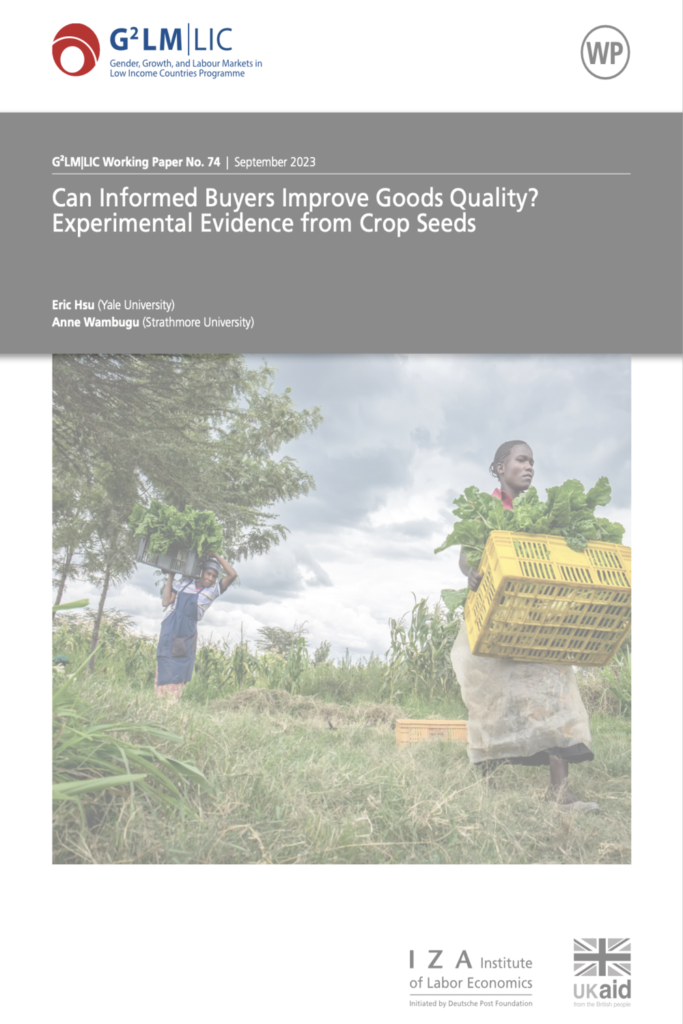
This study delves into the outcomes of introducing informed buyers into a market, with a specific emphasis on improving the quality of goods offered by sellers, particularly within contexts where verifying product quality is challenging. The investigation is centered on rural markets in Kenya, with a primary focus on addressing concerns related to counterfeit or uncertified hybrid maize seeds. To grapple with these concerns, authors deploy a market-level intervention with randomized allocations across rural markets.
Within the treatment group, small-scale farmers in these markets receive training aimed at equipping them with the skills necessary to identify quality-verified hybrid maize seeds using observable markers, such as lot numbers and SMS codes present on seed packets. This strategic empowerment arms farmers with the means to authenticate seed authenticity and quality, thereby mitigating the pervasive issue of imperfect information that often hampers the ability to assess seed quality before purchase.
They find that the observable markers reveal robust correlations with seed quality, underscoring their pivotal role in facilitating informed decision-making among farmers. Specifically, the presence of observable quality markers, particularly the inclusion of a KEPHIS sticker and a valid expiration date, demonstrates a substantial positive correlation with germination rates. The information treatment substantially enhances buyers’ familiarity with these observable markers. Treated buyers exhibit a heightened propensity to employ these markers when procuring seeds, and there is a pronounced proclivity to seek seeds from sources beyond the local market. Treated farmers experience a noteworthy 5% increase in maize yields, denoting their access to higher-quality seeds as a direct consequence of the information intervention. The magnitude of this impact is particularly detectable among more educated and remote farmers. Despite the positive outcomes for informed buyers, uninformed buyers residing in treated communities do not enjoy comparable increase in their access to high-quality seeds. Intriguingly, the intervention triggers a discernible reduction in the number of seed sellers in treated markets, likely attributable to informed buyers actively seeking higher-quality seeds from alternative sources. This phenomenon underscores the intricate equilibrium between the interests of well-informed consumers and the economic sustainability of local sellers, a dynamic that significantly influences market dynamics.
In summary, this research underscores the pivotal role of increasing consumer information in rural markets, particularly concerning essential agricultural inputs like seeds. These findings wield significant implications for policymakers, particularly in the realms of increasing food security and ensuring quality assurance within agricultural markets, notably in relation to seed quality. Moreover, the study highlights the nuanced challenge of harmonizing the interests of well-informed consumers with the economic viability of local sellers, a delicate equilibrium that profoundly shapes market dynamics. Read the detailed working paper here.